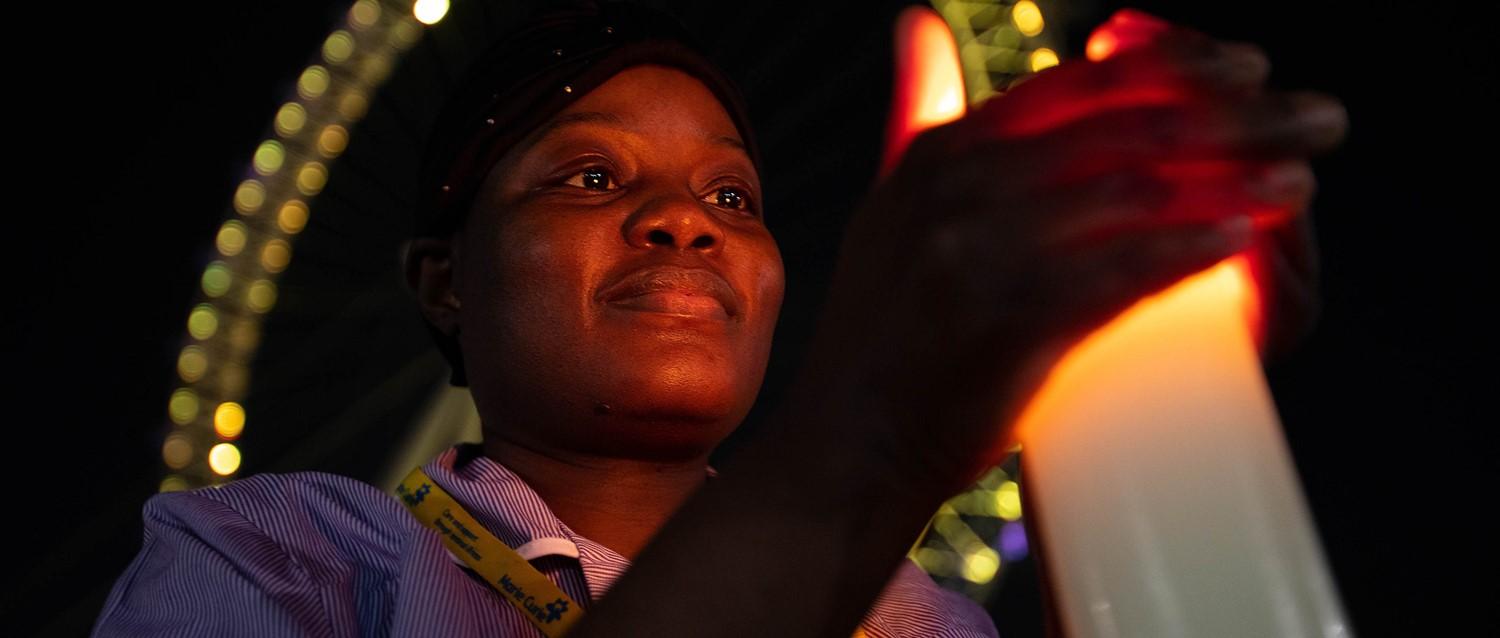
How to cope with New Year after losing a loved one
Peer reviewed by Dr Sarah Jarvis MBE, FRCGPLast updated by Amberley DavisLast updated 30 Dec 2023
- DescargarDescargar
- Compartir
Facing a new year after losing a loved one can be particularly upsetting. New Year is often seen as a time for reflection as well as a time to set expectations for the year ahead. This can make coping with memories all the more difficult. The key is to be kind to yourself, and to follow the tips from experts that can make grief a little easier to cope with at New Year.
En este artículo:
Seguir leyendo
Is grieving for a year normal?
Mourning the loss of a loved one can't be measured on a timeline. Grief support organisation Sue Ryder emphasise that there are no rules for how you should feel after a particular time. Bereavement is like an emotional rollercoaster, and as time goes on feelings of grief will gradually become more manageable. However, this experience is different for every person.
Grieving for a year or more is perfectly normal, but the first twelve months can be particularly difficult. "The first year is usually the hardest," says Alivia Rose, psychotherapist and spokesperson for the UK Council for Psychotherapy (UKCP). "It is a year of first anniversaries without your loved one, including birthdays and the first Christmas."
New Year after losing a loved one
New Year is a time associated with looking back and looking forward. Themes on past year reflection as well as on setting New Year expectations fill the media. If you have lost a loved one, this can be an especially challenging time.
Somia Zaman, psychotherapist in a private practice, explains that the first New Year can be particularly poignant: "Memories may rush back of happy occasions spent with them in previous years. Whilst others are partying, making resolutions, and looking to the future, you might not yet be ready to let go of the year you lost your loved one."
Even after your first New Year coping with grief, the memories that resurface over Christmas, and New Year reflection and resolutions can continue to trigger intense feelings of loss with each year.
However, this is not to say that your emotions won't become more manageable: "Over time, these recollections will feel comforting and even joyful, but they are all too raw at first and only add to the pain," adds Zaman.
Seguir leyendo
Ways to cope with grief in the New Year
It's important to be kind to yourself during New Year, especially in the first New Year after losing a loved one. This means giving yourself permission to experience the emotions you're feeling, not to be 'your usual self', or to feel pressure to adhere to 'normal' New Year celebrations and rituals.
Do what you want on New Year's Eve
"Remember that New Year's Eve itself is just one night," advises Zaman. "If it feels best to have a quiet night at home with the TV, then that is absolutely the right thing to do. You can choose to celebrate the start of the year in a more low-key way."
This could involve a New Year's Day walk or meal. While many people celebrate New Year with alcohol, only drink if this is what you feel like doing and remember that alcohol can be a depressant and can also trigger anxiety. These effects are more likely to occur if you drink while in poor mental health.
Selección de pacientes para Depresión

Salud mental
National Day of Reflection: coping with grief after losing a loved one to COVID-19
Since the pandemic began, the number of people in the UK who have died with COVID-19 listed as the cause of death has reached over 185,000. Restrictions on social contact have had a major impact on the bereaved and how they have been allowed to grieve. This year, the National Day of Reflection is honouring those we've lost.
por Emily Jane Bashforth

Salud mental
Tratar la depresión
La depresión suele mejorar sin tratamiento, pero puede tardar varios meses. Durante este tiempo, los síntomas pueden volverse intrusivos y afectar a la forma en que vive su vida.
por la Dra. Hayley Willacy, FRCGP
Try not to dwell on the year ahead
Rose also recommends that you try to avoid looking and planning too far ahead at the beginning of a new year. "Looking ahead to all the anniversaries you will experience without your loved one can be too overwhelming. Instead, try to live in the moment as much as possible."
Living in the moment is easier said than done, but partaking in activities that you enjoy can be a good place to start. If your usual New Year rituals bring up painful memories, you may also want to fill up your time doing something you've never done before.
Spend time with family and friends
If you are mourning a loved one, it's more important than ever to keep in regular contact with family and friends.
"When grieving, spending time with friends and relatives can be helpful, but you understandably won't feel like the life and soul of the party. If you are living with the burden of grief, you may still want to seek the company of others, but may also feel conscious that you don't want to bring the party down. This painful conundrum can leave you feeling especially isolated at New Year," explains Zaman.
"My advice would be not to isolate yourself. People will understand that you still need to socialise but that you might not be on your best form. If a large get-together is too much, then arrange to spend some one-on-one time with the people you are closest to."
Speak to someone who understands grief
Rose emphasises the importance of speaking to someone who understands grief, whether this be a friend who has also experienced bereavement, a trained volunteer at a bereavement charity such as Cruse or a professional counsellor.
"This can help you understand that grief is an emotional wave, and that these intense emotions which can make you feel unlike yourself, will eventually subside."
While emotions relating to loss can be heightened at New Year, this is important advice for any time during bereavement. Speaking to a professional can help you to cope with grief and also help to treat other common mental health conditions that can be triggered through the loss of a loved one.
In a 2020 Sue Ryder survey, nearly three quarters of participants believed they had experienced symptoms of depression and nearly two thirds had felt anxious after losing a loved one. Despite these high rates, only 18% of women and 12% of men said they had actively sought psychological help for these feelings1.
Para saber más
Historia del artículo
La información de esta página ha sido revisada por médicos cualificados.
Next review due: 30 Dec 2026
30 Dec 2023 | Latest version
26 Dec 2021 | Originally published
Autores:
Amberley Davis

Pregunte, comparta, conecte.
Explore debates, formule preguntas y comparta experiencias sobre cientos de temas de salud.

¿Se encuentra mal?
Evalúe sus síntomas en línea de forma gratuita